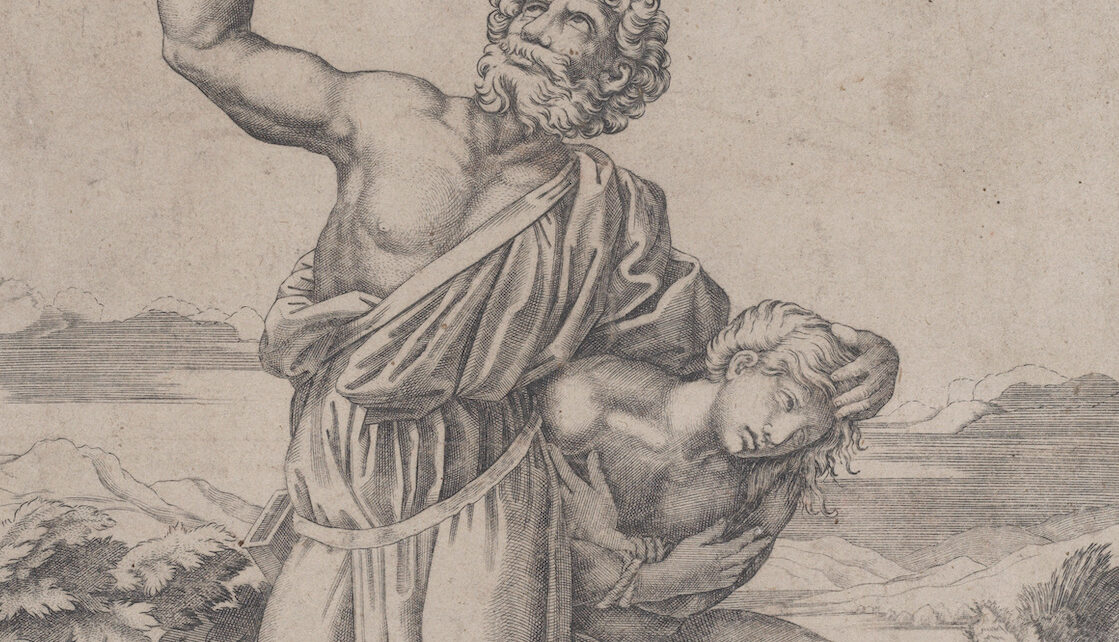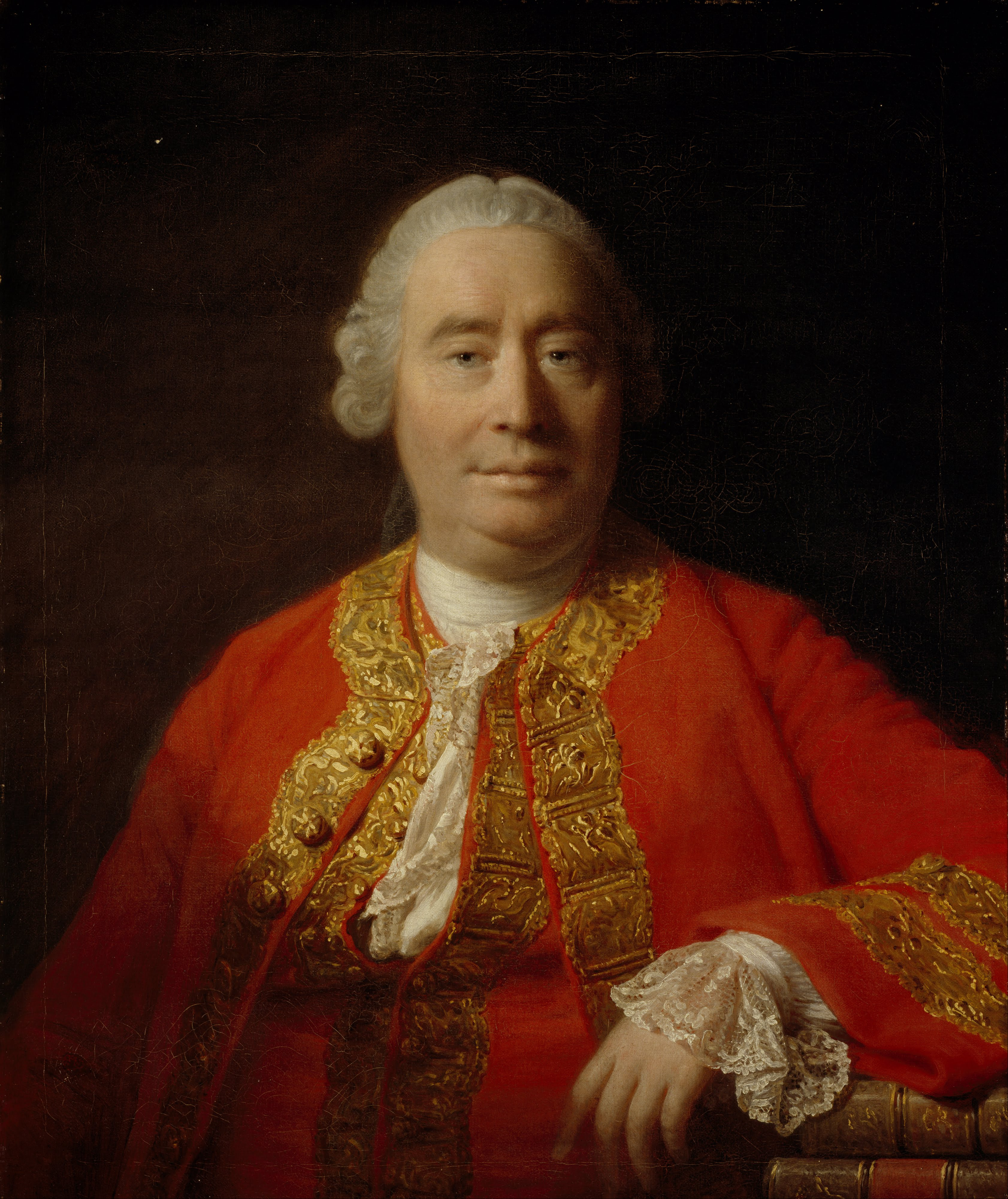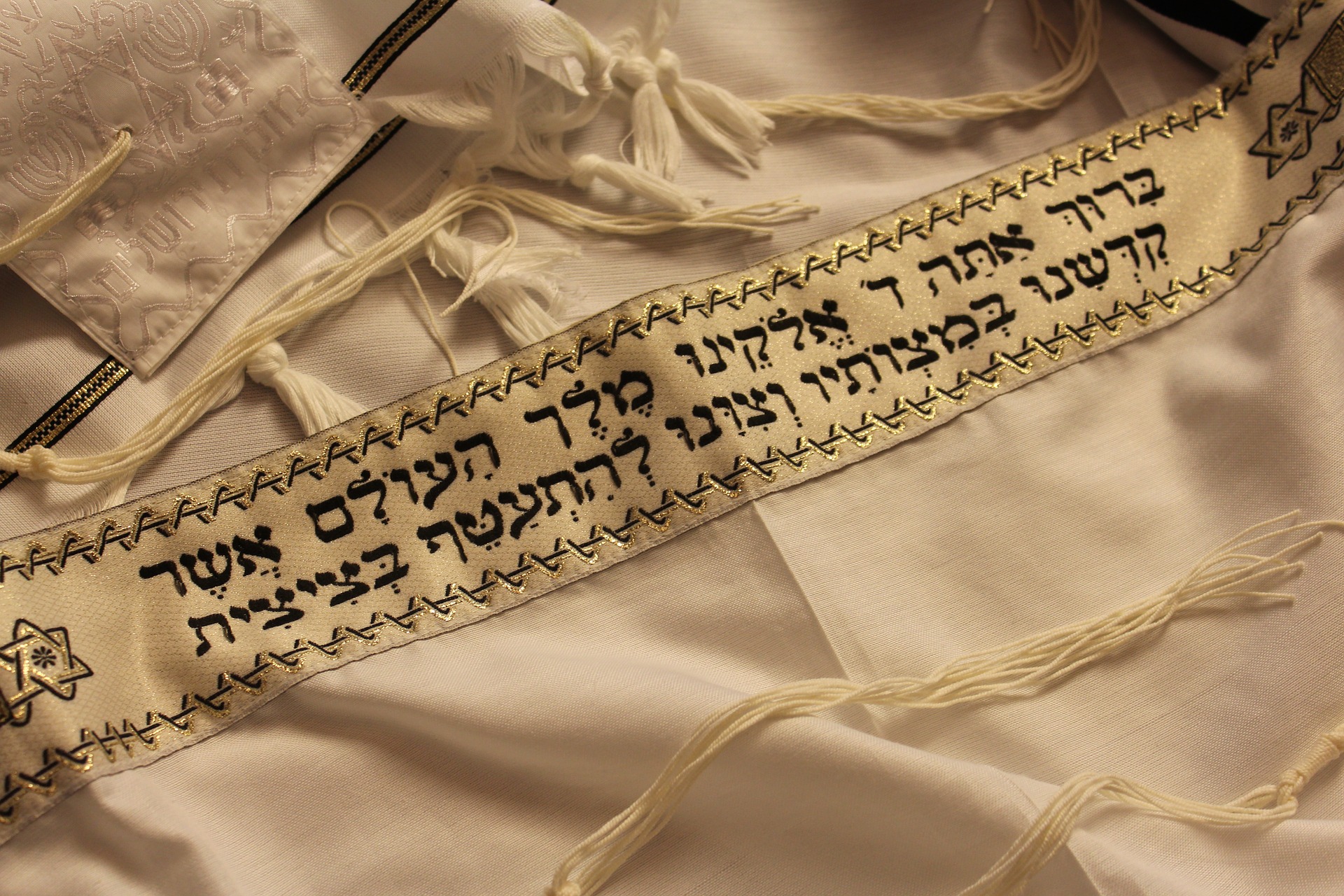The following is the second of a two-part series. The first can be found here
Is it not true, though, that many individuals of different races, creeds, and identities do live together in our cities? Against the backdrop of everyday life is there not a true plurality of subjects and ways of being? According to Rose, this plurality is an edifice. The scapegoat ritual “founds and re-founds” the mimetic violence of the “social order by instigating difference” disguised as true subjective plurality (Rose, 1992, 155).
Rather than ontological subjectivity there is only a nominal particularity; ‘difference’ is what is offered under the absolute regime. The ritual sacrifice substitutes ‘difference’ for authentic, subjective particularity because, in the words of Zizek, this alleged, “…thriving of differences relies on an underlying One, that is, on the radical obliteration of Difference.”[1] What the introduction of a “…thriving multitude… effectively [asserts] is the exact opposite: underlying all-pervasive sameness…”[2]
This is the most insidious violence of the modern city: the inclusion which exorcises any real particularity revealing itself as total exclusion. Gillian Rose understood this substitution of subjectivity for ‘difference’ to be a pseudo-ethics[3] that reduces societal. brokenness to ‘social struggle’ deploying a false concern for the individual all-the-while condemning their particularity before the universal by requiring the disintegration of the subject in the ritual sacrifice.[4]
Once the scapegoat’s identity is fully externalized, fully subsumed in the absolute, once the particularity is lost, the scapegoat has also lost their ability to shoulder the sacrificial burden of the subject before the law— which was the original transgression.[5] It is only the individual subject can be guilty before the law and it is therefore the individual subject who must be justified by the sacrifice. In the sacrifice, the original transgression of one is ritually transferred into the transgression of all, as all become the transgressor and the victim is transfigured into the scapegoat. So as violence spreads to all the law is given to all, and all transgress the law in the violent attempt to make the sacrifice of the scapegoat stand for all. But sacrifice cannot be made beyond the law.
The altar can never be set outside the requirements of the law it is trying to overcome. It is a part of the law. This is the curse of the law— it extends to all, and none are innocent of it, and therefore it is said the sacrificial scapegoat remains cursed even as they are placed on the altar.[6]
The homicide in Minneapolis has called forth the greatest fantasies of totalization and redemption from the sacrificial beyond, that the corruptible might be made incorruptible, the natural might be transmuted into the spiritual, that a holy city, a New Jerusalem would come down out of heaven to rest between the beginning at the individual and the final rapture into ethically pure categories.
But as Derrida, reflecting on Kierkegaard, reminds us: only a pseudo-eschatology would suggest an “end of ideologies, of the death of philosophy, of the end of systems” after which will remain only “the barest foundation of the social bond… the “pure relation to the other” “on which everything else will have to be reconstructed.”[7] This is the inversion of the sacrificial demand for universal relations, the deconstruction of all universal relations suggesting every relation is, in fact, totally particular.
At first an altar is constructed on the mountain beyond the city walls. Once the mountain is scaled, the view from the top reveals that the city walls extend beyond the horizon. So, the people believe they must internalize the absolute to escape it. They say, echoing Kafka, there is, in fact, no city because the city is all there is. We are all on our own Mount Moriah(s). We are all before a law writ just for us.[8] But this is paradoxical. Turning back to Kierkegaard, it is the law that says, “…the ethical as such is the universal, and as the universal it applies to everyone”, and “…the single individual is the particular that has its telos in the universal, and the individual’s ethical task is always to express himself in this, to abrogate his particularity so as to become the universal.”
In this way the absolute is never absent in the relation between two individual subjects, though it may be “latent… concealed”.[9] This also means any ‘minimum’ of relation will not remain “just between us”, as Derrida suggests it might. Indeed, relations cannot remain “absolutely invisible, singular, unique”[10], but they are always and constantly unfolding into each other to form a whole and back into the particular, and it is in this broken middle of unfolding between the law and the victim where we find the possibility of a third space.[11]
To seek the voice of the other to dwell together in unity is at once a political act requiring the creation of a space of encounter and a theological act requiring the interpretation and application of this middle space of encounter made possible by faith. Rose writes, “[T]o adopt the standpoint of faith is to be willing to stake oneself in the middle, between the arbiter of law (the sovereign will) and the victim. Faith is this in-between: to occupy the middle is to take precisely a stance on love and violence. Faith: acknowledges violence in love and the love in violence because the law is in both…”[12] The middle must be made and then discovered and rediscovered all over again so that the truth of the individuals’ encounter is not transformed into knowledge and then absolute law, but instead is preciously held inwardly between the subjects.
What Paul proposes is a way in which the new body of Christ inaugurated in the church is meant to be the space of encounter where the ‘already-not-yet’ political tensions of the very real ethical brokenness of the city and metaphysical redemption of the subject in the world through the fulfillment of the law are mutually implicated in Christ’s incarnation, death, and resurrection; where the middle is at once found in Christ and then revealed over and again through the ritual, sacramental acts of the faithful. For Paul, this remaking of the individual subject into a new body is described as an overcoming of the panoptic law that divides and precludes other through the person of God in Christ Jesus who unites: “…he has made known to us the mystery of his will, according to his good pleasure that he set forth in Christ, as a plan for the fullness of time, to gather up all things in him, things in heaven and things on earth.”[13]
Paul claims across his letters that the secret told Abraham on Mt Moriah has now been made known to everyone through the incarnation of God in Christ Jesus. Paul declares that the silence has been broken by the annunciation of God in flesh, “He is the image of the invisible God, the firstborn of all creation… For in him all the fullness of God was pleased to dwell, and through him God was pleased to reconcile to himself all things, whether on earth or in heaven…”[14] The crisis of the subject is overcome by the mediation of the divine person who fills the void of absence with the fullness of the ‘new creation’[15] of ‘one body’.[16]
The contrast is stark: in Exodus, Abraham is told by God to sacrifice his son and keep it secret to foreclose the interpretation of the encounter between divine and human behind a veil of exclusivity and unintelligibility. In Paul’s epistle to the Romans, God sacrifices his own son and proclaims it to the world in order to found a new body politic in the spiritual body of the divine person incarnate as God in Jesus Christ. Troels Engberg-Pederson reflects on this:
“The Christ event was the means by which God aimed to achieve this end. Christ himself gave up his own exalted status, became a human being, died, and was resurrected. The proper reaction on the part of human beings to experiencing the shattering event of the resurrection was that human beings would similarly give up the directedness toward their individual selves…”[17]
In the axial passage of Paul’s corpus in Romans 8 he writes, “For God has done what the law, weakened by the flesh, could not do: by sending his own Son in the likeness of sinful flesh, and to deal with sin, he condemned sin in the flesh…”[18] What the nomou (the law) was ēsthenei (weak and incapable of doing), could only be done through incarnation. The logos is often understood as divine reason or divine speech, the foundation of the text, and the law as nomou, as it is called in Romans 8, refers to the everyday rules and convention of what is acceptable in a certain place and time, the literal text itself.[19] The nomou is not absolute but is a mutable ‘frame of reference’ which “held us captive”[20] within our own horizons. And it is this law that reveals the dual nature of the subject that tries to bifurcate mind and body by setting them in antagonism towards each other:
“I do not understand my own actions. For I do not do what I want, but I do the very thing I hate. Now if I do what I do not want, I agree that the law is good… For I delight in the law of God in my inmost self, but I see in my members another law at war with the law of my mind, making me captive to the law of sin that dwells in my members. Wretched man that I am! Who will rescue me from this body of death?”[21]
Emma Wasserman notes, “…it is not the same ‘I’ but rather the mind and the inner person that want the good and sin and flesh that bring about evil. The result is that the ‘I’ really does not do the things that the body – taken as a whole – does, because sin imprisons and enslaves the ‘I’.”[22] And she continues, “Whereas verses 14-20 establish the problem of self-contradiction, Verses 21-25 bring this problem back to the issue of God and God’s law. Verse 21 restates the contradiction in terms of two competing laws or principals, one in the body, and the other in the mind or inner person.”[23] And Paul states this explicitly later in the passage, “For I delight in the law of God in my inmost self, but I see in my members another law at war with the law of my mind, making me captive to the law of sin that dwells in my members… So then, with my mind I am a slave to the law of God, but with my flesh I am a slave to the law of sin.”[24]
In this passage the nomo Theou – the law of the mind, reason and intellect, the source of the “I think, therefore I am” – obeys the command to keep God’s secret utterance safe, but only because the law of the flesh, of the body in the world, is powerless to speak. The two laws stand in antagonism toward each other but work in concert to maintain the silence. But Paul does not suggest a solution where one law overcomes the other, and this is where he leads us beyond the archaic possibilities of totalitarianism or nihilism back into the broken middle. In Romans 8 he suggests an altogether more revolutionary approach in which the nomos tou pneumatos frees us from the old antagonisms of the nomou ten hamartias and tou thanatou. We remain subjects under the law, as Rose would like, but under a new law of the Spirit:
“For the law of the Spirit of life in Christ Jesus has set you free from the law of sin and of death. For God has done what the law, weakened by the flesh, could not do: by sending his own Son in the likeness of sinful flesh, and to deal with sin, he condemned sin in the flesh, so that the just requirement of the law might be fulfilled in us, who walk not according to the flesh but according to the Spirit.”[25]
Richard Hays reminds us Paul’s goal here in Romans is working out an understanding of the relationship between his own participation in the Jewish covenant and the good news of the Jewish Messiah for the gentiles in which the two halves of humanity are unified into a shared new covenant family.[26] And of course, this theme is readily supported by a plain reading of Paul himself in other letters like Ephesians, “But now in Christ Jesus you who once were far off have been brought near by the blood of Christ. For he is our peace; in his flesh he has made both groups into one and has broken down the dividing wall, that is, the hostility between us. He has abolished the law with its commandments and ordinances, that he might create in himself one new humanity in place of the two, thus making peace, and might reconcile both groups to God in one body through the cross, thus putting to death that hostility through it.”[27]
This can be taken further if Emma Wasserman’s notion of the two laws – of the flesh and of the mind – is tied back into Rose’s diremption of political categories of absolute law and absolute nihilism as Jew and Gentile respectively. Both represent a weakness in the law that must be overcome. For the Jews, it is the law of the flesh, those to whom were given the “handwriting of requirements”[28], and for the gentiles it is the law of the mind, those, “…who do not possess the law, do instinctively what the law requires, these, though not having the law, are a law to themselves. They show that what the law requires is written on their hearts, to which their own conscience also bears witness…”[29]
The effect of this surprising presence, incarnation, is the unification of the two halves of humanity – Jew and gentile – into one whole body, in the healed middle, through the nomos tou pneumatos, the law of the spirit of Christ, “As many of you as were baptized into Christ have clothed yourselves with Christ. There is no longer Jew or Greek, there is no longer slave or free, there is no longer male and female; for all of you are one in Christ Jesus.”[30]
For Paul, this is not merely anecdotal but remakes his own history as a Jew into a broader story about how Christ the logos, Speech as the divine Word, becomes subject and dwells in flesh in order to overcome the absence of the subject in the text exposed by nomou.
“What then are we to say was gained by Abraham, our ancestor according to the flesh? For if Abraham was justified by works, he has something to boast about, but not before God. For what does the scripture say? ‘Abraham believed God, and it was reckoned to him as righteousness.’ Now to one who works, wages are not reckoned as a gift but as something due. But to one who without works trusts him who justifies the ungodly, such faith is reckoned as righteousness.”[31]
“Therefore, since we are justified by faith, we[a] have peace with God through our Lord Jesus Christ, through whom we have obtained access[b] to this grace in which we stand; and we boast in our hope of sharing the glory of God.”[32]
It was not that Abraham did not understand the secret or that he was justified by keeping the secret, it was that it was unutterable until the secret was made into Word and Word became flesh. Only God could tell the secret of faith he gave to Abraham on Mt Moriah because it is only through the Word made Flesh, language made into subject, that it could be revealed. Through the incarnation of the divine Word the secret of faith has been made known to all, and the broken middle space of shared subjectivity has been reinstated in the incarnate, broken body of God in Christ.
Deeply philosophical and political questions are always already theological. In The Broken Middle, Rose is trying to think about how the abstract claims of philosophy and theology relate to our world, but not to try and overcome for prematurely foreclose contradictions between these but to dwell in the broken space where the two meet. In this way there is an ethical significance simply to experience the struggle, the agony of working out the brokenness.
For Paul this was certainly true, “…for he has graciously granted you the privilege not only of believing in Christ, but of suffering for him as well—”[33] And while Rose articulates clearly the ways the systems we work with are fundamentally broken, there is a sense in which she too is at a loss in The Broken Middle for what must be done to heal the relationship between philosophy and ethics, the abstract organizing principals of our society and the real encounter of people living in these systems.
Joshua Davis writes, “What interested her was not the absence or instability of trust, but the fact that unpredictability and even failure are essential aspects of all truth worthy of the name. For Rose, every act of communication or meaningful understanding entails a fundamental risk– of failure, falsehood, misunderstanding, devastation, loss. These acts have no sure place from which to begin or end, but all meaningful love, joy, and justice in the world is real because it was risked.”[34] Paul calls this unsure place of beginning ‘faith’, to know and think of nothing but the incarnate body of Christ.[35] And Rose and Paul agree that all this kind of faith requires only the hardest thing: “a suspension of the ethical” in which “the single individual, becomes higher than the universal.”
Abraham understands this as he journeys up Mount Moriah. His offering was not the child, Isaac, the individual one being sacrificed at the beckons of the universal. Nor was it the sacrifice of the ethical universal for the sake of a special relationship between Abraham and God. The offering was of the man who resigned his rightful claim to both the universal and the particular. It was the divine person alone who can say of this sacrifice of his self, “…no one takes it from me, but I lay it down of my own accord” [36]; who can overcome its violent repetition. This is the teleological suspension of the ethical in the broken middle between the universal law of the state and the particularity of the individual.
The suspension of the ethical is not synonymous with “the renunciation of the ethical”[37], its postponement, or deferral, but in the literal hanging in the tension between law and the individual what is sought is the “actualization… of the ethical”[38]; i.e., relations with the singular, particular “other” which unfold into the fullness of the universal. It is an openness to “the other” called “faith”[39], “the movement of infinity”, possible, believable only “on the strength of the absurd.”[40] It is the substantive alternative which supersedes the antagonism between the repetitive ritual violence of the universal and the non-ethics of justice before the law. To make this movement is to accept and even invite the difficulty of dwelling within the political community of the polis. Understanding that devalues the embodiment of the subject leave themselves open to totalitarian seizure of all social arrangements and authentic subjectivity.
Instead of closing the walls of the city – cordoning ourselves off from the outside inside a totalitarian absolute – the gates must be thrown open. Not negligently or wistfully, of course. Though the gates are opened, the walls – the law – remains intact. We remain fully aware of the excitements and dangers of arrogating to the totalizing powers, but we outflank and out-narrate these at every instance by suspending them in the broken middle between the law and ethics in the kingdom of God that is the body of Christ, in the open space below the sacred mountain-top of Moriah, taming the wilderness and wildness of the encounter on a thousand Canfield Drives between a million George Floyds and Derek Chauvins.
Michael C. Raubach is a PhD candidate in theology at Aarhus University (Denmark). His research is funded by a fellowship from the ITN “History of Human Freedom and Human Dignity in Western Civilization Project”. He also holds masters degree from the University of Durham and the University of Glasgow
______________________________________________________________________________
[1] Slavoj Žižek, Interrogating the Real: Selected Writings (New York: Continuum, 2006), 324.
[2] Ibid., 324–25.
[3] Rose, The Broken Middle, 279.
[4] Ibid., 182
[5] See: Jacques Derrida, The Gift of Death. Religion and Postmodernism (Chicago: University of Chicago Press, 1995)
[6] Galatians 3:13
[7] Derrida, “Above All, No Journalists”, 64.
[8] Franz Kafka, The Trial . Wisehouse Classics. (Ballingslöv, Sweden: Wisehouse, 2016), 121.
[9] Kierkegaard, Fear and Trembling, 88
[10] Derrida, “Above All, No Journalists”, 57
[11] Rose, The Broken Middle, 148–49.
[12] Ibid.,148
[13] Ephesians 1:9-10
[14] Colossians 1:15,19
[15] 2 Corinthians 5:17
[16] 1 Corinthians 12:12
[17] Troels Engberg-Pederson, “Paul and Universalism.” in Paul and the Philosophers (New York City: Fordham University Press, 2013), 94.
[18] Romans 8:3
[19] See discussion in: Ritu Birla. “Performativity between Logos and Nomos: Law, Temporality and the Non-Economic Analysis of Power.” Columbia Journal of Gender and Law, October 1, 2011, Vol. 21 No. 2 (2011)
[20] Romans 7:6
[21] Romans 7:15–16, 22–24
[22] Emma Wasserman, “Paul Among the Ancient Philosophers.” in Paul and the Philosophers (New York City: Fordham University Press, 2013), 76–77.
[23] Ibid., 77
[24] Romans 7:22–23, 25
[25] Romans 8:2-4
[26] Richard B Hays, “‘Have We Found Abraham To Be Our Forefather According To the Flesh?’ A Reconsideration of Rom 4:1.” Novum Testamentum 27, no. 1 (1985), 84–86.
[27] Ephesians 2:13–16
[28] Colossians 2:14
[29] Romans 2:14-15
[30] Galatians 3:27–28
[31] Romans 4:1-5
[32] Romans 5:1-2
[33] Philippians 1:29
[34] Davis, Joshua B. Davis, ed. Misrecognitions: Gillian Rose and the Task of Political Theology. Eugene, Oregon: Cascade Books, 2018), 3.
[35] 1 Corinthians 2:1-2
[36] John 10:18
[37] Rose, The Broken Middle, 55.
[38] Ibid., 13.
[39] Ibid., 95.
[40] Kierkegaard, Fear and Trembling, 69.




